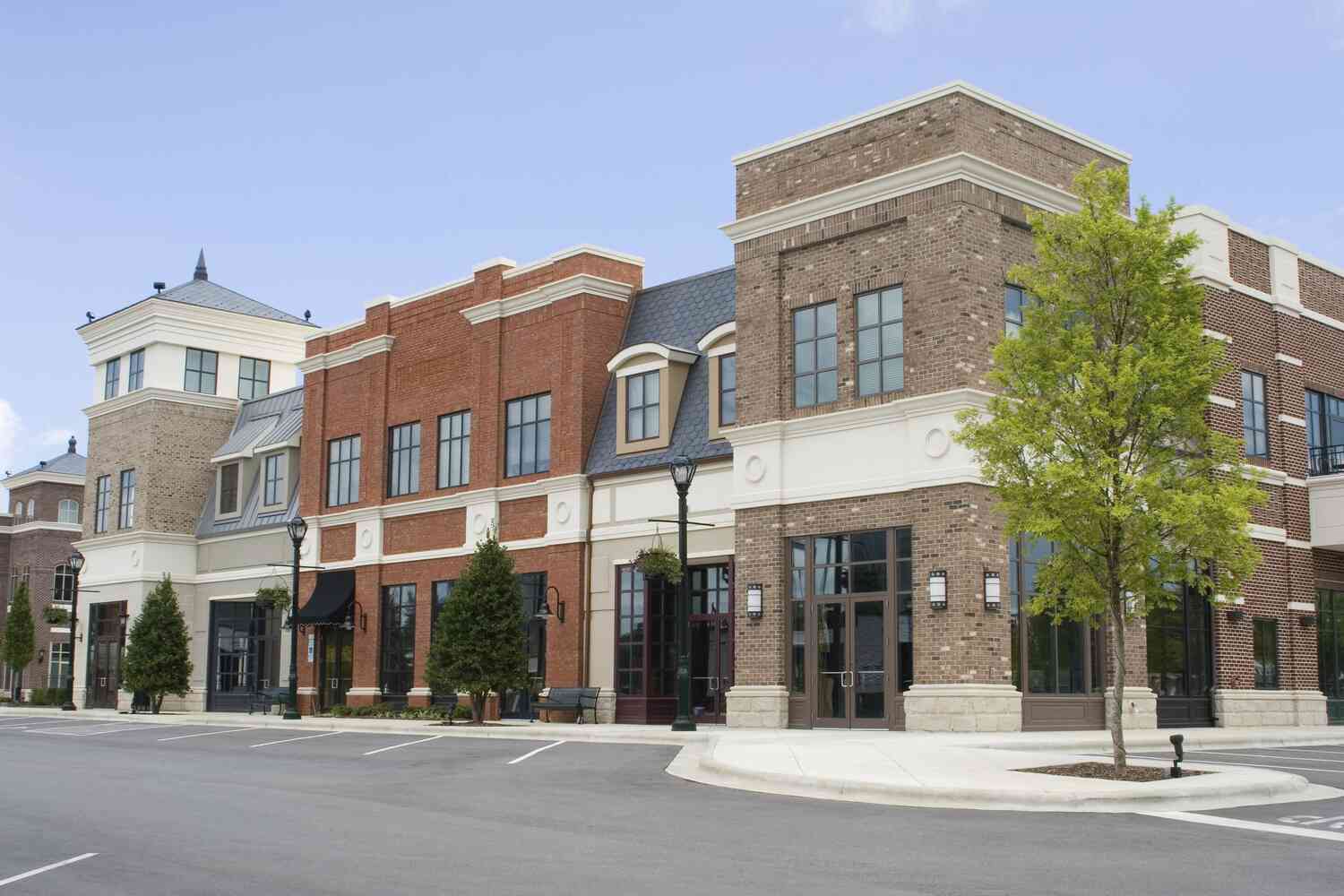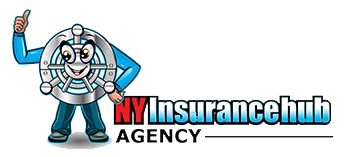NY Commercial Property Insurance
NY Property Insurance helps cover the damage or loss of your property, like structures or buildings, and items including equipment, furniture, inventory, supplies and fixtures. NY Insurance Hub agents evaluate your commercial property insurance needs to find the best suite for your liabilities and risks. With decades of experience in building and property insurance along with direct appointments to the top carriers serving New York State, we can help you with proper protection and price, and love doing it.
Typical policies protect your company’s physical assets from fire, explosions, burst pipes, storms, theft and vandalism, among others.

Risks of Holding Inadequate NY Property Insurance
We continue to work with countless potential new clients that think they have the best property insurance in NY, yet on reviewing their current policies, come to learn they are a fire away from a financial nightmare. Below are a few of the many gaps in protection we encounter when reviewing a company’s current policies. We don’t want it to be you!
Building Not Insured to Value:
Commercial Replacement Cost Policies typically require a structure to be insured to at least 90% of the structure’s replacement cost, oftentimes at 100%. If it’s not insured to the value required, a co-insurance penalty is applied. Say you own a $1 million building with a 100% co-insurance clause and a $5000 deductible and insure it for $700,000. There’s a fire that causes $400,000 in damage. The penalty would be assessed by dividing the insured amount by the amount that was required ($700,000/$1,000,000) or .70. The loss of $400,000 x .70 = $280,000 less $5000 deductible = $275,000 paid by the insurer and $125,000 paid by the insured out of pocket. The sad thing is, most of the time, owners are unaware they are underinsured due to a rise in the price of materials and labor, miscalculated initial reconstruction cost estimate, subsequent improvements to the structure unaccounted for, among others. It is also very important to work with your agent on an annual basis to review your policy and reassess reconstruction cost valuations.
Undervalued Business Personal Property:
This is another area where we find business owners are often underinsured. Everything owned by a company that is not attached to the structure is typically termed as business property, items such as inventory, equipment, supplies, and fixtures. Anything permanently installed by a tenant is also their business personal property and needs to be accounted for. Anything permanently installed by the building owner should be included in their policy. Keep in mind that co-insurance penalties can apply here too, and in the event of a total loss, can cause the owner to suffer a significant financial loss. Many factors can cause an undervaluation, usually after the initial policy was issued. Items such as added inventory, permanent site improvements, company expansion, among others. Make sure to check your limits, ensuring an accurate current replacement cost amount of protection for your assets. We can help you with this.
Loss of Business Income:
Sometimes known as business interruption insurance, helps recoup lost income when your company must shut down due to a peril such as fire, theft, wind, etc. For example, say you own a restaurant and a kitchen fire causes you to shut down for 3 months for cleanup and repair. Most endorsements will provide the income that normally would have resulted from regular business activity. In the event of a total loss where you have to relocate your business, lost income would be provided up to the number of months coverage limit you carry or until you are relocated and operational again. This protection is critical for most small businesses and sometimes not included or included at 3 to 6 months limit when 12 months is certainly more advisable. We make our clients aware of this vital safeguard and will extend to at least 12 months protection at the approval of our customer if 12 months is not already included in the base plan. It can literally mean the difference between closing up shop for good or being able to reopen your doors.
Tenants Fire Legal Liability:
If you rent a space for your company that burns down, you could be liable to pay for the damages. Fire legal liability refers to the amount your insurer will reimburse if there’s a fire at your rented business space. It protects against damage to your rented space. It’s very common for base policies to extend a $50,000 limit and we see a lot of those policies when reviewing current coverage for prospective new clients. Unfortunately, in many cases, it would run in the $100’s of thousands to bring the spaces back to original condition as required. Fires can and do happen and you don’t want to be on the wrong end of the fire legal liability limit if it happens to you. We can help you to determine the adequate amount of protection limits to keep you financially safe.
Choosing The Best Commercial Property Insurance In New York
We understand that every business is unique and truly enjoy learning more about your company and you. The more we understand, the better equipped we are to offer you the most appropriate options at a very competitive price. Whether it’s a $500 premium or a $100,000 premium, we are going to do our best for you.
We service clients in the Albany, Schenectady, Troy, Latham, Clifton Park, Saratoga Springs, Cohoes, Watervliet areas as well as the entire state of New York. Each one of our clients is given a dedicated expert to work together to proficiently address all your concerns.
Here are some commercial property lines of insurance that we service among others:
- Building Owners
- Professional Offices
- Service Offices
- Apartment Buildings
- Condominiums
- Office Buildings
- Strip Malls
- Property Managers & Owners
- Retail Stores & Centers
- Restaurants
- Salons & Barbershops
- Bakeries
- Cafes
- Taverns
Call one of our professional agents at 518-783-0105 for more about commercial insurance.
FAQ
RCV covers the cost to replace a structure with new construction. ACV covers the replacement value less depreciation. If your policy is on the actual cash value, you’ll likely pay lower premiums over the course of your policy, but you could be out huge sums if you want to rebuild from scratch after a total loss.
Very simply, market value describes the estimated amount that a property would sell for on the date of valuation. Any land included with a commercial property is also a part of its market value. Replacement or reconstruction cost covers the cost to replace or repair a structure with materials of the same or comparable quality, but does not include the value of any land.
The flood damage peril is excluded under commercial plans. You’ll have to buy a separate flood policy to protect your office space or owned structure from the costs of flood damage.
The premium chiefly depends on the value of the assets and whether you are insuring on replacement cost value or actual cash value. Other rating factors include the business location, structure construction type, and industry.
The policy will typically cover the business building if you own, or the space you rent along with equipment, tools, inventory, supplies, computers, business furniture, and even outdoor signs. Typically, you’ll have either a named perils policy or one that is open perils. A named perils policy will reimburse costs only from problems specifically listed in the policy, which typically include fire, theft, vandalism and wind damage. An open perils policy will give you broader protection and will cover any problem except those listed as exclusions, one of those being flood.
Theft is not excluded for most every insurer. An important distinction here is when your business assets leave your premises more than 100 ft to 1000 ft depending on the carrier, it is no longer covered. For equipment that is used off premises you’ll need to get an “inland marine” policy to protect it separately against loss.
There is no “one” company that has the best options for every business. Every insurer has their specific types of business they have experience with and like insuring, typically rating very competitively for them. It’s our job to find the best “one” for you.
You never have to come to the office. In fact, most of our interactions are done over the phone, although we love meeting people in-person if convenient for you.
Yes. All of the companies with do business with offer multiple payment options including 1-Pay, 2-Pay, semi-monthly, quarterly, and monthly options.
At present, we only work with New York State residents but are looking to expand into other States.
This is a policy endorsement that reimburses insureds for costs associated with demolishing, repairing, rebuilding, or constructing a structure if a reimbursable loss prompts additional changes due to laws or regulations usually related to building codes. It’s especially important for owners of partially damaged buildings that were constructed decades ago and built to a lesser standard, because they usually won’t pass today’s codes. Ordinance or Law Protection is normally made up of 3 Parts.
Coverage A pertains to the undamaged portion of the building if for example, the local building code requires an entire roof to be replaced if 30% or more of the roof is damaged. If 40% of the roof were damaged, Coverage A would provide compensation for the remaining 60% of the expense to replace the undamaged portion of the roof.
Coverage B pertains to demolition and also relates to the undamaged portion of the building. For example, if local building code requires an entire structure be torn down if 50% or more of the structure is damaged due to a named peril, and 55% of the building was damaged, then the remaining 45% of demolition cost would be reimbursed under Coverage B. Without it, the owner would have to pay for this cost out of pocket.
Coverage C pertains to increased costs of construction. Common examples of this might be handicap access points or fire sprinkler systems.
No. We make the process as easy as possible for you. In most cases, it’s really as simple as taking payment and emailing the application for you to e-sign, and that’s it. We even prepare and send the cancellations to your current insurer for you.
This policy or endorsement is often used to provide protection for assets that are movable or could be in transit over land. Businesses that work off-site, move goods and products, or are in possession of the assets of others typically need commercial inland marine insurance. It’s common in the construction industry for contractors equipment, technology industry for communication towers and electronic equipment, transportation industry for motor truck cargo, as well as landscapers for earth moving equipment.
There are normally three different levels of named perils for commercial coverage that can be applied to your policy. Basic, Broad, and Special. Basic contains the least number of perils, Broad includes more perils, and Special has the most perils.
Basic: Includes common perils such as vandalism, fire, lightning, wind, explosions, vehicle collision, and even volcanic activity.
Broad: Includes additional protection for falling objects that damage the exterior of your property, frozen pipes, ice and snow damage, theft, and accidental water damage.
Special: Usually covers all perils except for specific perils that are excluded in the policy such as earthquakes, floods, neglect, war, nuclear hazard, and intentional acts.

